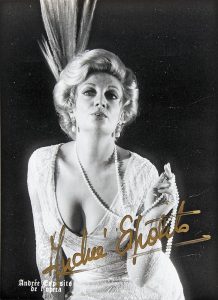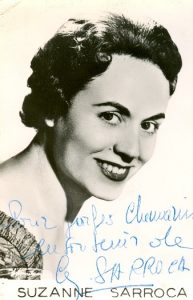Podcast: Play in new window | Download (Duration: 1:39:26 — 101.5MB) | Embed
Subscribe: Spotify | TuneIn | RSS | More
As a follow-up to my Mezzos on the Verge series, which seemed to resonate with so many of you, today I present the first in a new ongoing series, Over-the-Top Sopranos. As I first began exploring this repertoire, my first thoughts were focused on Italian repertoire. But then I gave myself the challenge of focusing on the French style instead, thinking that I would not have as easy a time of it. Was I ever wrong! There is such a profusion French (and non-French) singers going to the brink with life or death performances of French music that thrills one to the core. Naturally I focus on familiar composers of both French grand opera (Meyerbeer, Halévy, Gounod) and opéra-comique (Massenet, Bizet) but, as always with Countermelody, there are repertoire surprises along the way, including operas by Ernest Reyer and Sylvio Lazzari. And the wealth of sopranos heard here boggles the mind: again ranging from favorites such as Ninon Vallin, Rosa Ponselle, Mariella Devia, Germaine Lubin, Elisabeth Rethberg, and Carol Neblett, to such lesser-known lights as Andrée Esposito, Françoise Pollet, Madeleine Sibille, Mattiwilda Dobbs, Charlotte Tirard, and Margarete Teschemacher, alongside many others. This is the kind of episode I absolutely love to produce, one rich in both discoveries and old favorites, performed by old and new favorites. Goûtez-vous-en!
Countermelody is a podcast devoted to the glory and the power of the human voice raised in song. Singer and vocal aficionado Daniel Gundlach explores great singers of the past and present focusing in particular on those who are less well-remembered today than they should be. Daniel’s lifetime in music as a professional countertenor, pianist, vocal coach, voice teacher, and journalist yields an exciting array of anecdotes, impressions, and “inside stories.” At Countermelody’s core is the celebration of great singers of all stripes, their instruments, and the connection they make to the words they sing. By clicking on the following link (https://linktr.ee/CountermelodyPodcast) you can find the dedicated Countermelody website which contains additional content including artist photos and episode setlists. The link will also take you to Countermelody’s Patreon page, where you can pledge your monthly or yearly support at whatever level you can afford.

